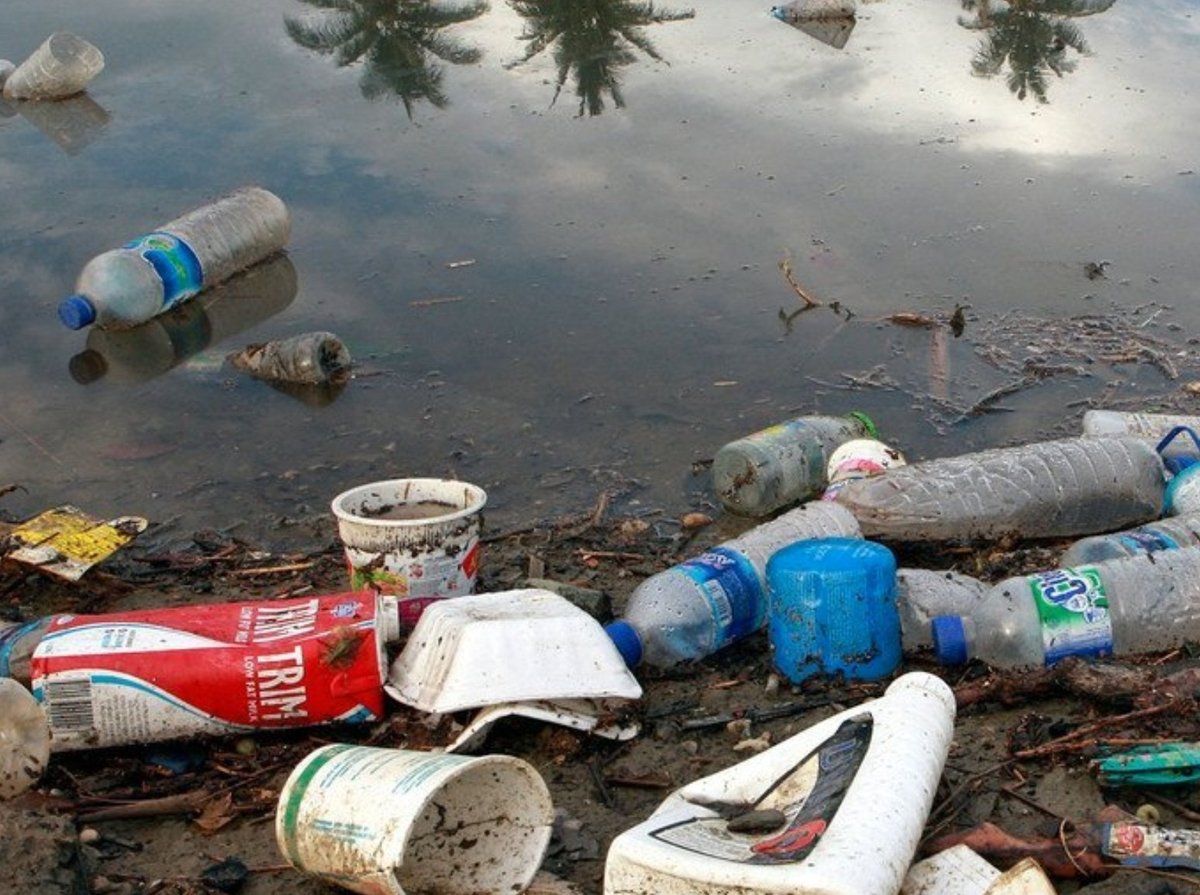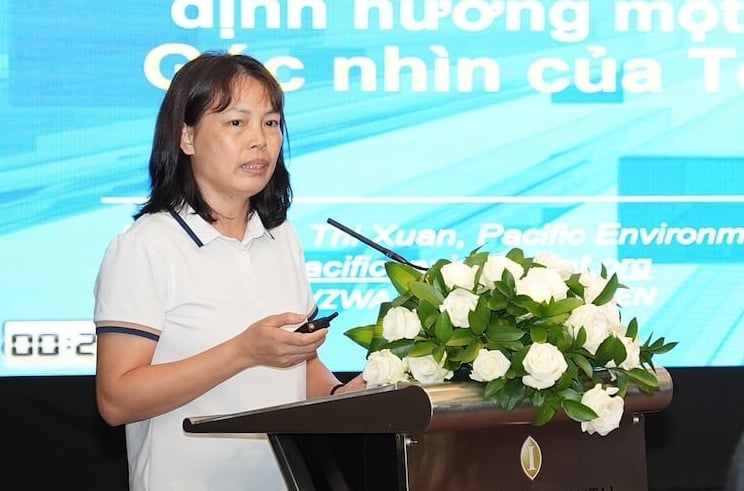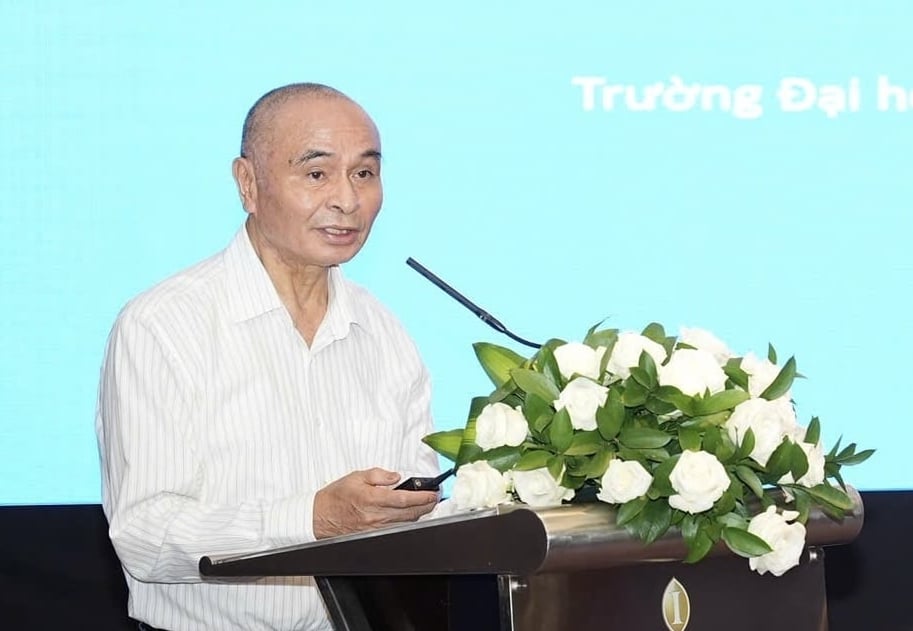November 6, 2025 | 02:43 GMT +7
November 6, 2025 | 02:43 GMT +7
Hotline: 0913.378.918
November 6, 2025 | 02:43 GMT +7
Hotline: 0913.378.918
Ahead of the INC 5.2 round of negotiations on the global plastics treaty, experts have offered recommendations to support the Vietnamese negotiation delegation.

The world is heading toward the INC 5.2 negotiation round to develop a global plastics treaty aimed at addressing white pollution. Photo: UN.
Mr. Pham Van Hieu, policy advisor for UNDP, stated that using the Chair’s text released after INC 5.1 as the basis for negotiation at INC 5.2 on the global plastics treaty is entirely appropriate. However, to ensure practicality and safeguard the interests of developing countries like Vietnam, he emphasized the need for flexible and supportive adjustments that take into account disparities in national capacities.
Accordingly, Mr. Hieu made specific proposals regarding provisions in the draft global plastics treaty. First, regarding plastic product exemptions, he stressed the importance of ensuring transparency, clearly defined time limits, and application only in truly necessary cases. The exemption list should be agreed upon at the international level, but allow flexibility for developing countries to adapt based on their local conditions and needs.
From the NGO perspective, Ms. Quach Thi Xuan, Country Director of Pacific Environment in Vietnam, noted that an effective global plastics treaty must address the entire lifecycle of plastic from extraction, production, and consumption to disposal and focus on three key pillars: reducing original plastic production, eliminating toxic plastics, and establishing a fair financial mechanism.
Meanwhile, Associate Professor Dr. Vu Thanh Ca from the Hanoi University of Natural Resources and Environment argued that during the negotiation process, Vietnam and other developing countries should proactively propose content, rather than only reacting to drafts, in order to protect national interests and advocate for a fair and feasible treaty.
Regarding product design, UNDP expert Pham Van Hieu recommended that rigid universal standards should be avoided. Instead, each country should be allowed to develop its own technical standards based on its socio-economic conditions and existing capacity. Developed countries may be able to fully eliminate toxic plastics, whereas developing nations require more flexible roadmaps.
Additionally, Ms. Quach Thi Xuan proposed incorporating legal obligations into the treaty to promote the design of plastics that are reusable, safe, and non-toxic.

Ms. Quach Thi Xuan, Country Director of Pacific Environment in Vietnam, emphasized that the global plastics treaty must be strong, fair, and effective. Photo: NPAP.
With regard to plastic emissions, particularly those released into the air and water, the draft global plastics treaty should include specific control provisions and promote stronger coordination with existing international conventions such as the Basel, Stockholm, and MARPOL Conventions. However, the limitations in monitoring and enforcement capacities of many countries must be acknowledged, and technical and financial assistance should be integrated into the agreement.
In terms of production control, Ms. Quach Thi Xuan recommended that the treaty establish clear national targets to define the responsibility of each country in reducing plastic production. She proposed that the update cycle for these targets be shortened to every two years, instead of the current five-year period, to ensure a more timely response to the plastic pollution crisis and its severe impacts on climate, biodiversity, and human health.
In the area of waste management, Mr. Pham Van Hieu supported a provision to ban open burning and landfilling of plastic waste, but stressed the need for tailored implementation roadmaps for each country. In particular, the global plastics treaty should establish a robust import and export control system for waste and implement an effective tiered plastic waste management framework. At the same time, it must ensure adequate financial and technical resources for developing countries to fulfill their obligations.
Ms. Xuan also agreed with applying a hierarchical approach, prioritizing reduction at the source, followed by reuse and recycling. However, she argued that certain technologies such as incineration, pyrolysis, or chemical recycling. They should be excluded from the list of promoted solutions due to their environmental and health risks. Furthermore, the treaty should include provisions to ban the transboundary movement of plastics containing hazardous chemicals and restrict energy recovery from plastic waste.
“A global plastics treaty will only be meaningful if it is strong enough to drive real change, fair enough to gain wide acceptance, and binding enough to ensure substantive implementation,” Ms. Xuan emphasized.
Associate Professor Dr. Vu Thanh Ca highlighted that the financial mechanism will be a key pillar to ensure the effective implementation of the global plastics treaty, particularly for developing countries.
According to him, obligations for countries like Vietnam can only be fulfilled if accompanied by timely support in finance, technology, and technical assistance. As such, the group of prioritized countries should be expanded to include not only least developed countries but also downstream river nations and those most vulnerable to plastic pollution.

Assoc. Prof. Dr. Vu Thanh Ca presents recommendations for the draft global plastics treaty. Photo: NPAP.
UNDP expert Pham Van Hieu emphasized the need for binding obligations on developed countries to mobilize and allocate resources in a fair and transparent manner. Financial support mechanisms must be adequate, easily accessible, and must not impose debt burdens on recipient countries. Moreover, tools such as polymer fees and Extended Producer Responsibility (EPR) should be clearly defined in the treaty, rather than being left as non-binding recommendations.
To ensure the availability of financial resources, Mr. Hieu noted that the mobilization mechanism should avoid excessive technical complexity. Funding should be provided in a new, additional, and easily accessible form prioritizing developing countries and should be managed through the COP. This could include a dedicated multilateral fund, a GEF Trust Fund, or other financial instruments approved by the COP.
He further suggested that aid should preferably be in the form of grants or concessional loans, supporting countries in planning, reporting, and implementing their national actions under the treaty.
The Intergovernmental Negotiating Committee (INC) began its work in the second half of 2022 with the ambition of developing a legally binding instrument to address plastic pollution. To date, five rounds of negotiations have been held. The most recent session, INC 5.1, took place in Busan, South Korea, in November 2024, but was suspended due to significant disagreements among participating parties. The upcoming INC 5.2 session is expected to move the process closer to a common agreement on plastic pollution.
Translated by Kieu Chi
/2025/11/05/0751-1-150011_431.jpg)
(VAN) Prime Minister Pham Minh Chinh has demanded that the EC's IUU 'yellow card' must be lifted at any cost and cannot be prolonged any further.
![Clean Data - Bright Trust: [Part 1] Digital transformation for the people](https://t.ex-cdn.com/nongnghiepmoitruong.vn/608w/files/huytd/2025/11/05/4423-anh-chup-man-hinh-2025-11-05-082740-082845_602.jpeg)
(VAN) With the goal of putting people at the center, the 'Enriching and Cleansing Land Data' campaign is being implemented as a people-driven digital revolution.

(VAN) The Fisheries Surveillance Sub-department of Region V has stepped up patrols during the peak month of IUU fishing prevention under Official Telegram No. 198/CD-TTg, detecting multiple violating fishing vessels, including 'three-no' boats.
/2025/11/03/1301-2-180420_416.jpg)
(VAN) In parallel with its determination to lift the IUU 'yellow card,' Quang Ngai is accelerating investment in fisheries infrastructure and encouraging offshore fishing to develop a sustainable fisheries sector.

(VAN) Viet Nam's nationally determined contribution for the 2026-2035 period will reflect the country's highest commitment, contributing to the global effort in response to climate change.

(VAN) This was among the practical recommendations made by the British Chamber of Commerce in Vietnam (BritCham) at a consultation workshop on the draft Law amending several environmental and agricultural laws.

(VAN) Starting this November, several key government policies pertaining to the agriculture and environment sectors will officially come into force across Vietnam.